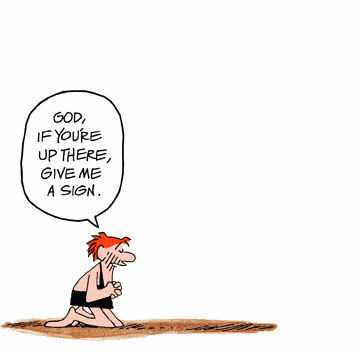Without A Reason
In this world, every person is searching for a reason. It’s the unquenchable thirst to find a grounding and meaning to all things that is happening. Leibniz in his Theoria motus abstracti, he mentioned this principle of reason: Nihil est sine ratione that means “nothing is without a reason.” Inversely, this principium rationis would say that everything has its own reason. Everything that exist, that is, would have a reason for its existence, for its being. For to have reason is to have that certain ground, that certain control over things. Heidegger further explains this fact when he said in Principium Reddendae Rationis that nothing happens, that means nothings becomes into being without a reason or nihil fit sine causa. This happens in cognition, when 'why' does what is cognized exist, and why it is the way it is. “Why?” for we ask for reason and intelligibility, for this is to show our powers, that means it would then be proven that nothing indeed is without reason.
“Nothing is without a why”, if we hold on to this principle try to observe a children playing and ask ourselves, does the child that plays have a ground/reason for its playing? The child never asks itself why he/she plays. He/she just play, and also as long as it is possible and notice the smile and delight of a child when he/she plays.
Meister Eckhart a Dominican Friar had this idea to live without any reason or purpose. He said:
The rose is without why, it blooms because it blooms,
It pays no attention to itself, asks not whether it is seen.
The rose “blooms because it blooms”, it blooms without a reason, without a why. It just happens, and its beauty is unfolded to us. And “it pays no attention to itself” it does not care if someone notices and praises its beauty or if the one who is looking explains its blooming. “It asks not whether it is seen” because it will still bloom, even with our without someone gazing at it. Eckhart when asked about his own living he answered “I don’t know, but I am happy to live.” His childlike answer amazes me for it brings about to him the simplicity and greatest happiness that a man could attain.
We grown ups put so much emphasis on time, as my friend said “it’s the culprit for order, schedules and priorities”; yet for a small child, there is no time. Time passes when they play because it stops or suspends time, there endless play. But we stop the absurd and supposedly endless play because we insist that discipline, order and priorities be instilled in the child.
One needs to see the joy, delight and smile in a child’s eyes and witness to a mystery that unfolds. A knowing smile that knows something no one else knows, a smile that hides a joy that can never be taken away form it. For a child, like the mystic and the rose, hides a secret that we can never ever know.
“Nothing is without a why”, if we hold on to this principle try to observe a children playing and ask ourselves, does the child that plays have a ground/reason for its playing? The child never asks itself why he/she plays. He/she just play, and also as long as it is possible and notice the smile and delight of a child when he/she plays.
Meister Eckhart a Dominican Friar had this idea to live without any reason or purpose. He said:
The rose is without why, it blooms because it blooms,
It pays no attention to itself, asks not whether it is seen.
The rose “blooms because it blooms”, it blooms without a reason, without a why. It just happens, and its beauty is unfolded to us. And “it pays no attention to itself” it does not care if someone notices and praises its beauty or if the one who is looking explains its blooming. “It asks not whether it is seen” because it will still bloom, even with our without someone gazing at it. Eckhart when asked about his own living he answered “I don’t know, but I am happy to live.” His childlike answer amazes me for it brings about to him the simplicity and greatest happiness that a man could attain.
We grown ups put so much emphasis on time, as my friend said “it’s the culprit for order, schedules and priorities”; yet for a small child, there is no time. Time passes when they play because it stops or suspends time, there endless play. But we stop the absurd and supposedly endless play because we insist that discipline, order and priorities be instilled in the child.
One needs to see the joy, delight and smile in a child’s eyes and witness to a mystery that unfolds. A knowing smile that knows something no one else knows, a smile that hides a joy that can never be taken away form it. For a child, like the mystic and the rose, hides a secret that we can never ever know.

















0 Comments:
Post a Comment
<< Home